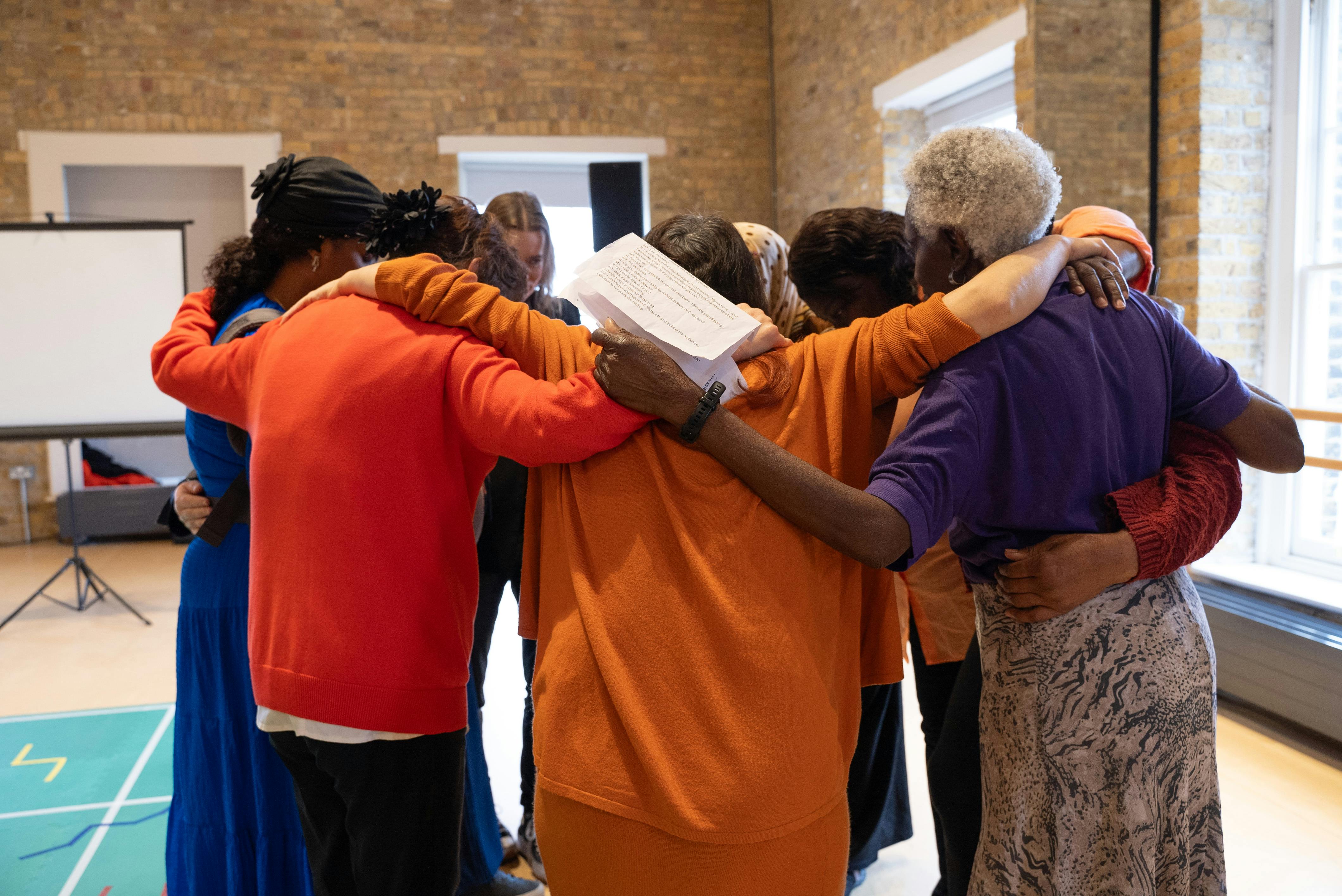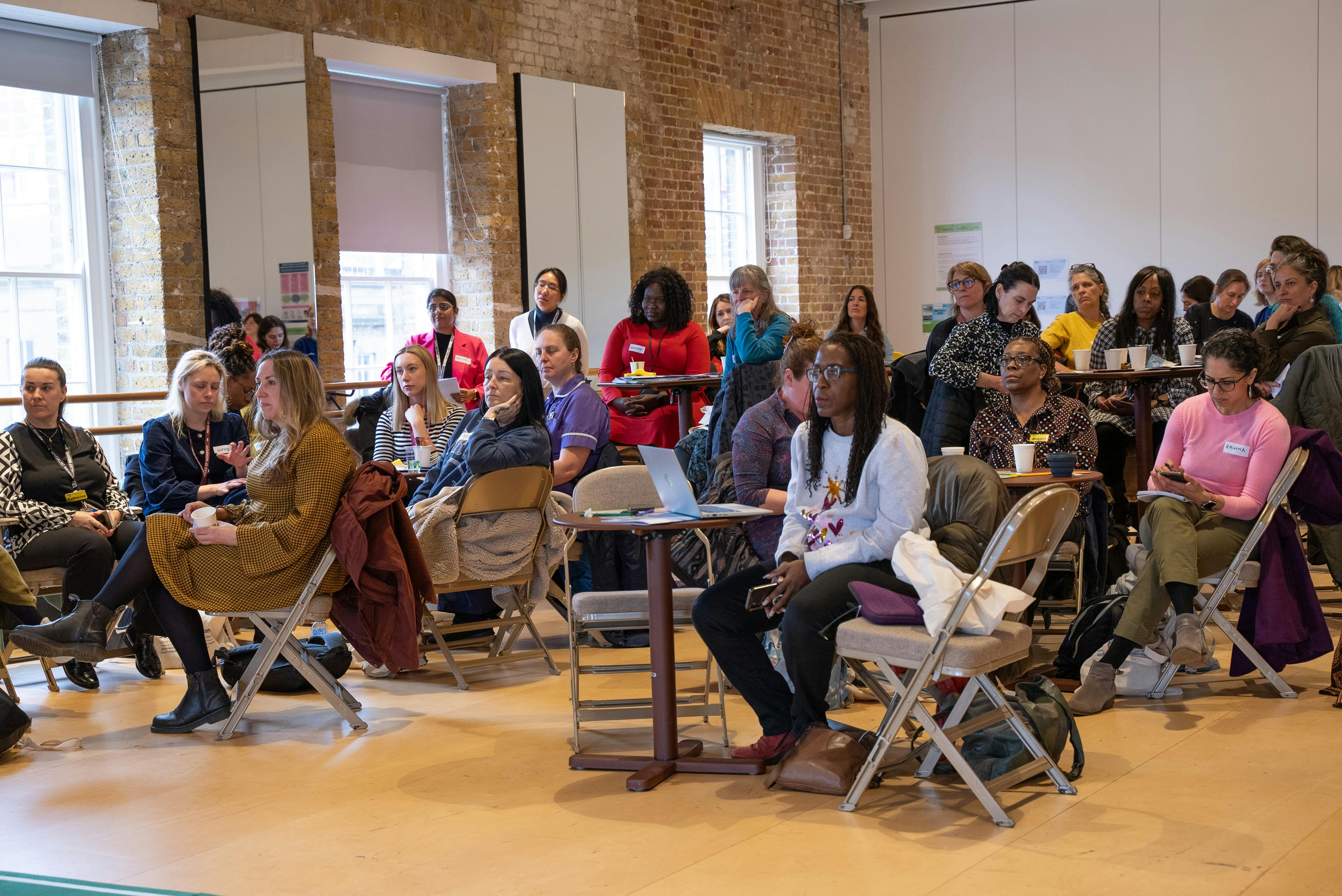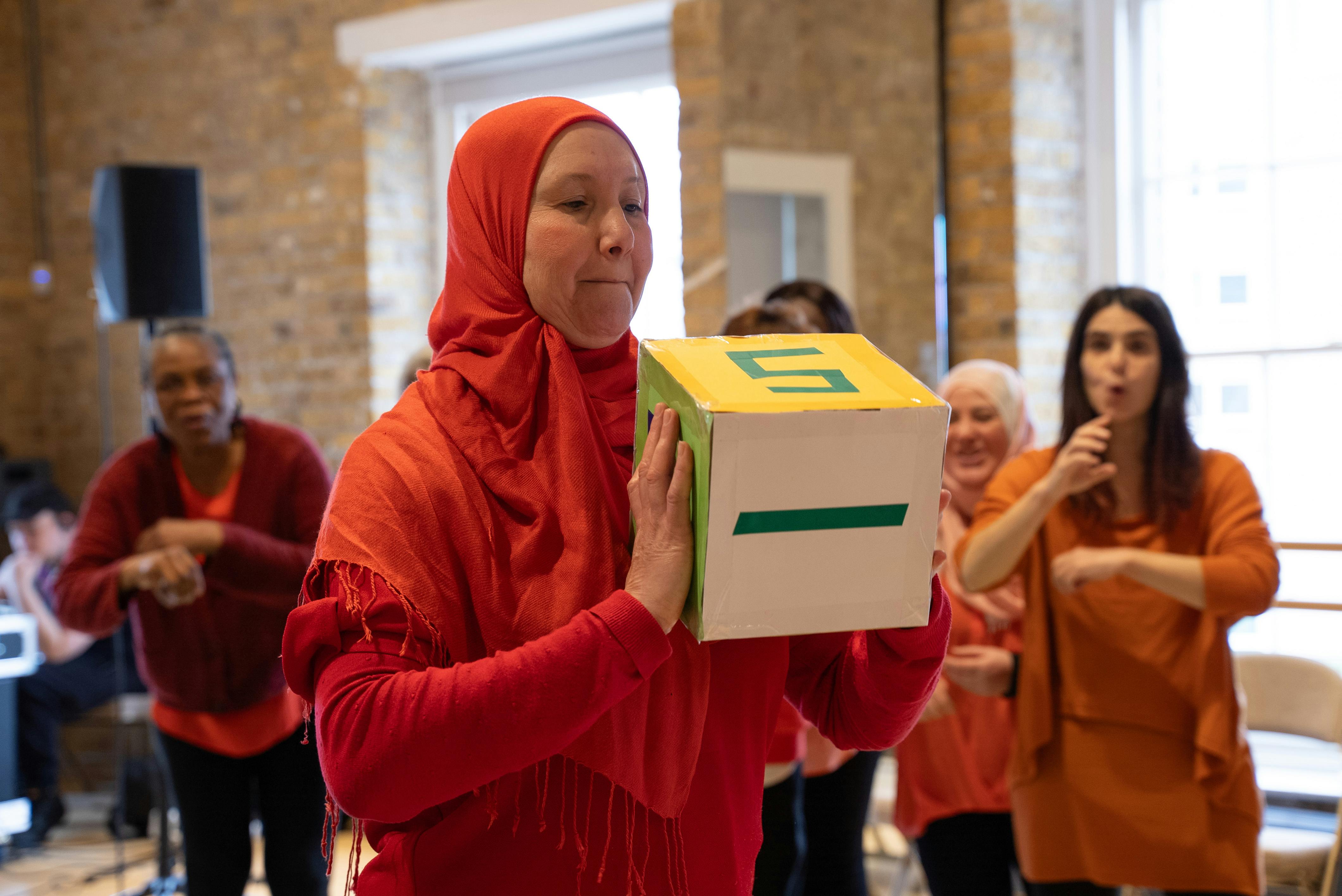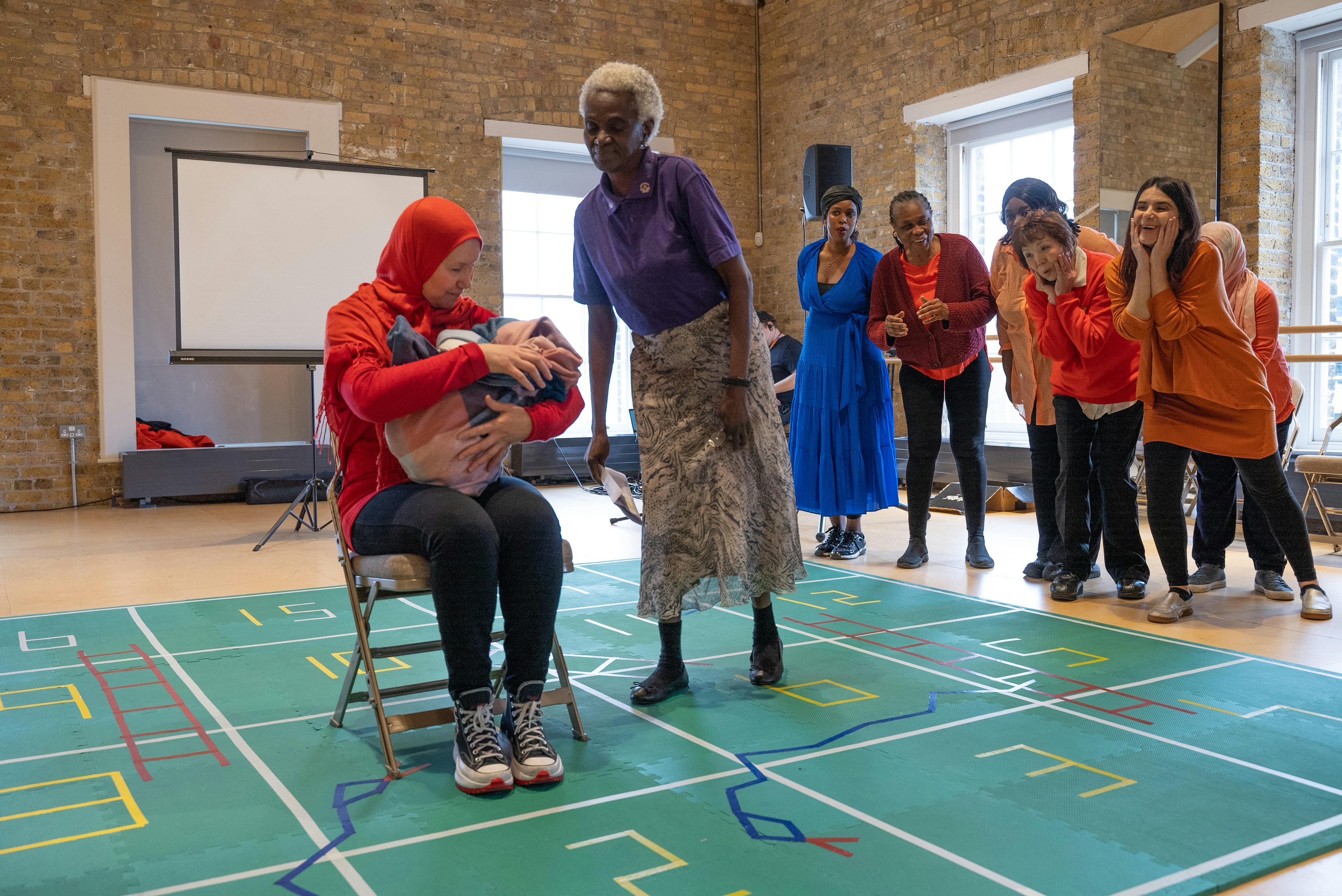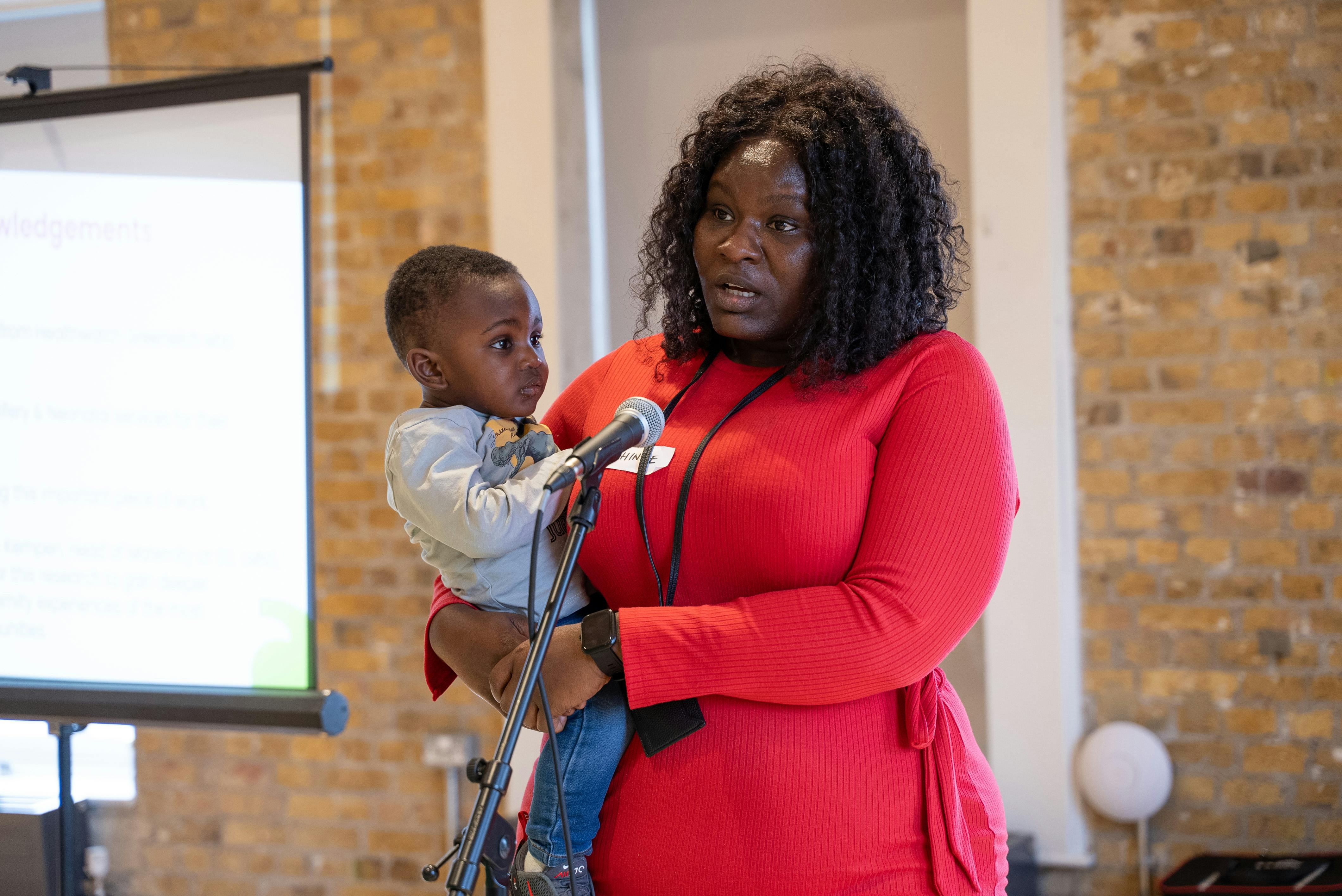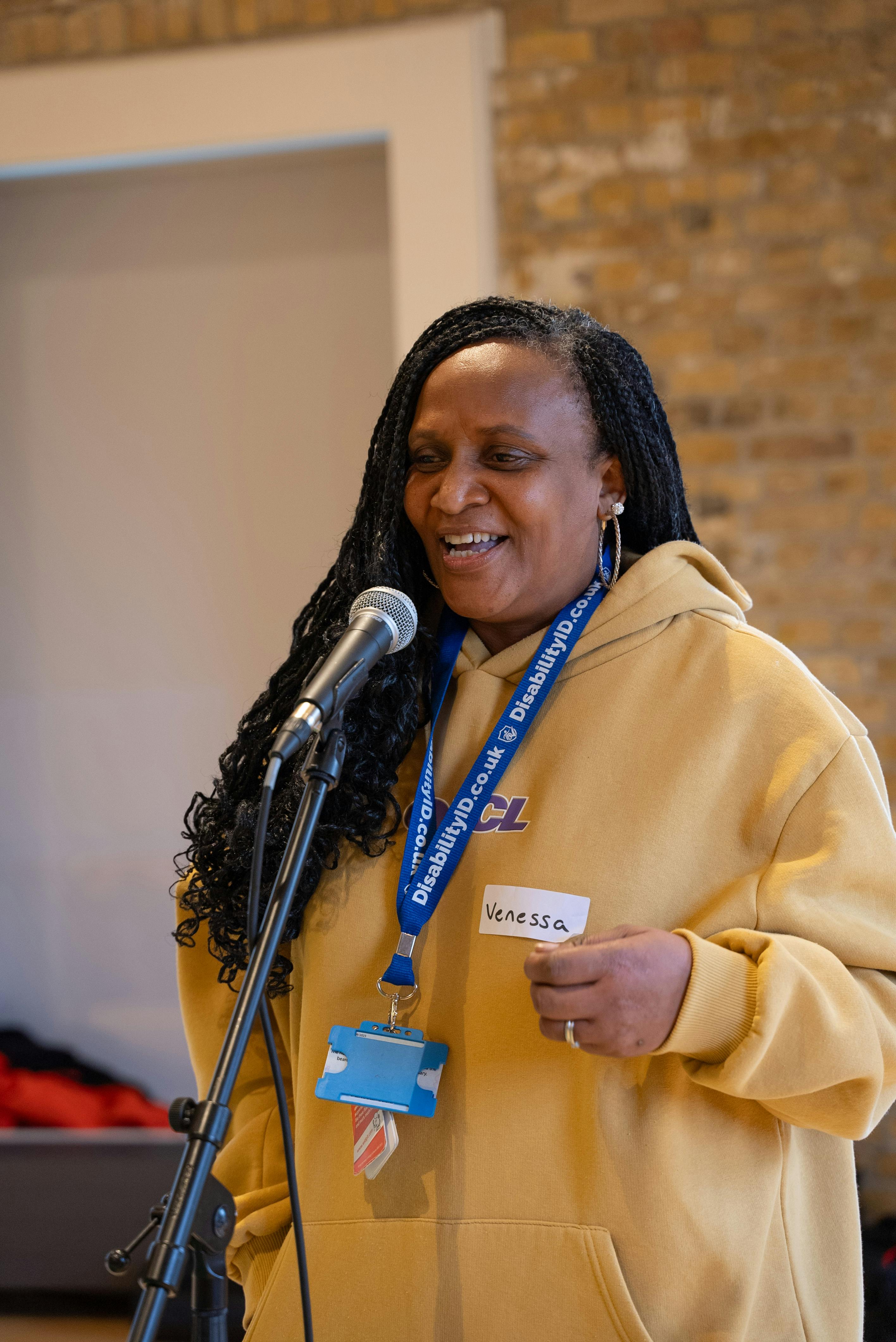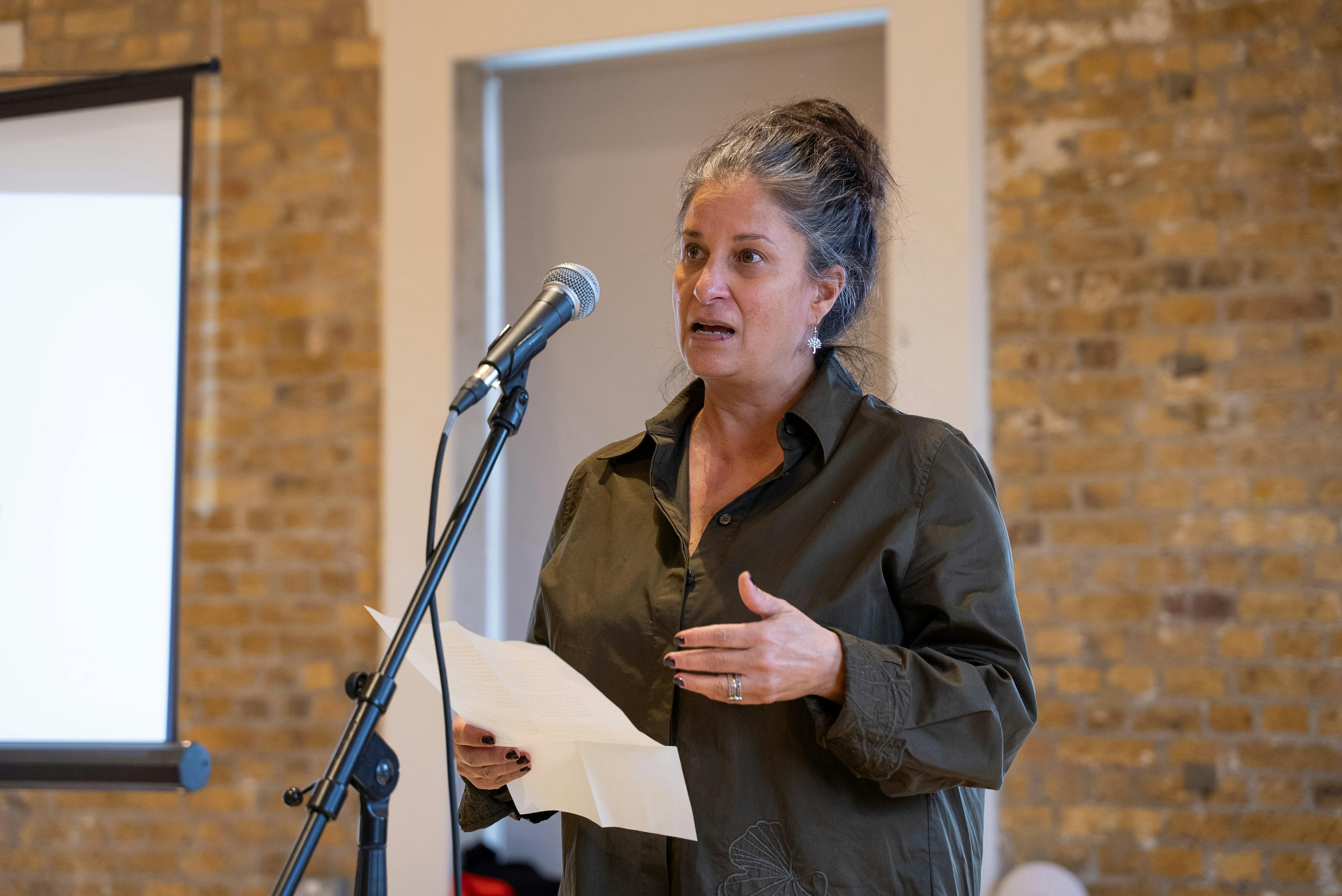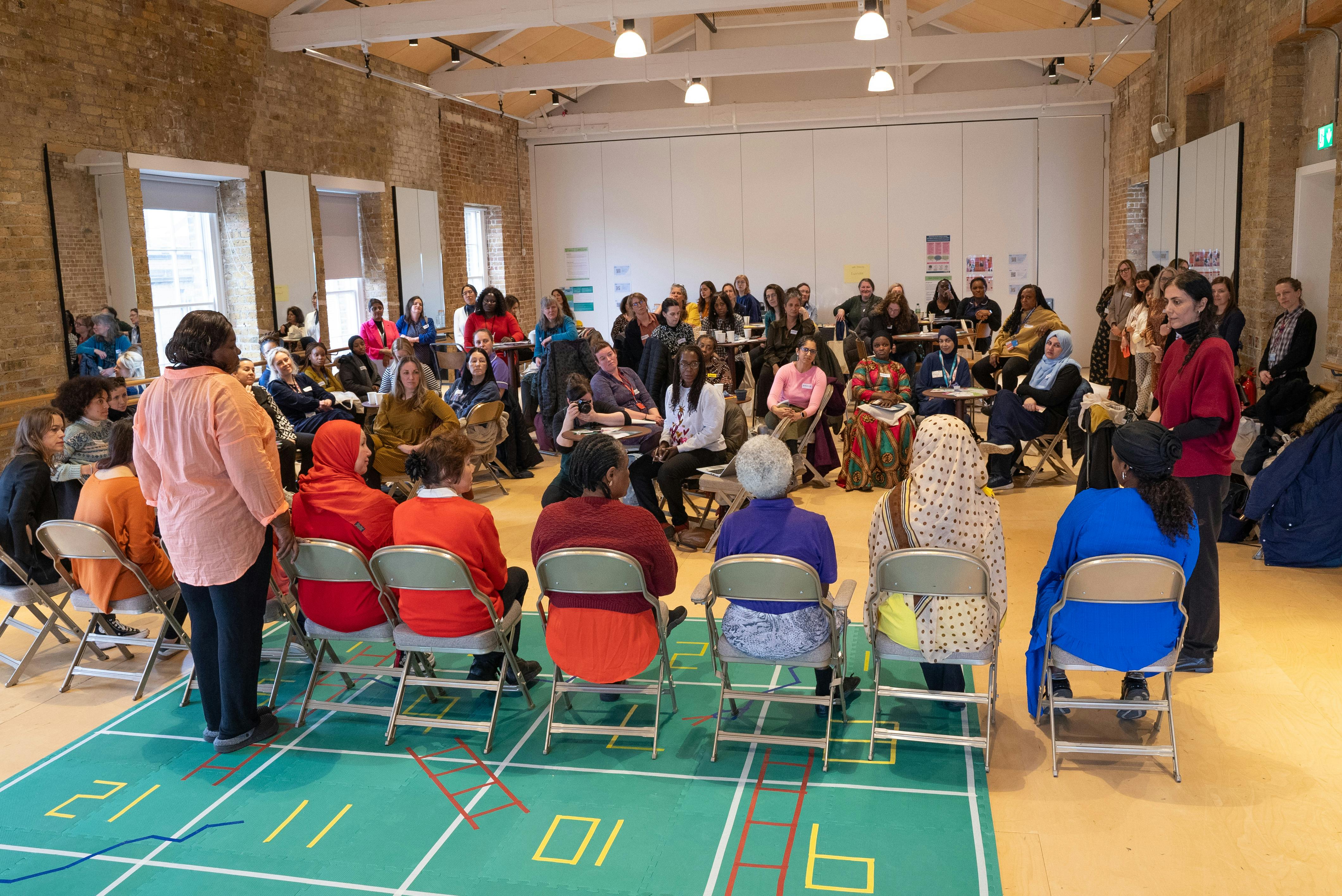Working with local organisations to improve antenatal and maternity health
Our antenatal maternity and services are keen to build an open dialogue with women and birthing people that use those services in south east London, so we continue to improve and respond to people’s needs.
We recognise that not all pregnant and postnatal women and birthing people have the access to services that they should or are able to contribute to building services that are based around them.
We partnered with five voluntary sector organisations to support our efforts to reach maternity communities across south east London and work with them to better understand what challenges they face and how we can make services accessible for everyone.
The projects involved direct work with people from the following groups: Migrant, Asylum seekers, Black, Asian, and Ethnic Minority groups, Lesbian, Gay, Bisexual, Transgender, Queer, and Intersex (LGBTQI+), and those living in the most deprived areas of SEL, those with experience of south east London neonatal services, disability or a new-born with a disability, experience of miscarriage, pregnancy loss or termination of pregnancy due to fetal abnormality.
Over the last 12 months the five organisations have been working directly with specific communities through a variety of methods. They have been listening and collating feedback from those communities to help us understand and deliver actions moving forward to support the development and improvement of South East London maternity and neonatal services.
On Monday 25 March, aiming to showcase and share insights in an innovative way about the work of five voluntary sector organisations. Watch the video from the show case event for more information about the event and the impact of this project in our antenatal and maternity health work.
Some of the findings include:
- The experiences of migrant and asylum-seeking women and birthing people of maternity and neonatal services is often marked by variations in care and barriers to access.
- Migrant and asylum-seeking women and birthing people encountered challenges with language and communication and had limited understanding of the healthcare system.
- There was in inconsistent access to antenatal and postnatal care, and a general lack of culturally sensitive and linguistically appropriate services.
- The absence of family support for migrants greatly impacts their wellbeing leaving them without reassurance, companionship, or practical assistance during a critical time.
- Financial constraints and lack of awareness about available resources, can leading to immense isolation in the postnatal period.
Read more on our South East London Integrated Care System website
Creating Ground C.I.C, Healthwatch Greenwich, East of England LGA and Healthwatch Lambeth projects delivery are finished and you care read more about outcomes of their work and insights reports from the communities that they are working with.
| Healthwatch Greenwich | Creating Ground | Healthwatch Lambeth - | East of England LGA | Yewande 103 |
 |  |  |  |  |
The projects aimed:
- Building on previous engagement and intelligence data we have about the inequalities experienced to ensure that we are reaching those communities
- Creating and share adapted information about maternity and neonatal services and how people can access the services
- Listening and collate feedback from those communities to help us understand and deliver actions moving forward to support the development and improvement of South East London maternity and neonatal services.
- Developing, building, and strengthening relationships with communities experiencing health inequalities so that we can find the best ways to engage that enable us to develop and continue conversations
This partnership helped the team to listen, learn, and understand how we make maternity and neonatal services more inclusive and equitable for everyone.
Recognising the need to build on what we heard from women and birthing people the SEL LMNS has started running solution-focused workshops in partnership with Citizens UK. These workshops bring together service users, healthcare and NHS professionals, and community organisations to act on highlighted problems using a solution-based approach and to co-create solutions to improve care. The workshop used a problem, issue and solution approach to set up tangible actions that the LMNS can take forward to improve services and experience.
The first workshop took place on the 12 November and focused on how people access information about maternity and neonatal services. Over 65 participants contributed ideas and energy, resulting in suggested key solutions from creating clear, accessible, and culturally appropriate communication material to how we can work more closely with voluntary and community sector organisations to share information.
These solutions will strengthen the LMNS Equality and Equity action plan and support work going forward to reduce inequalities for women and birthing people across SEL. More workshops will take place in the new year







